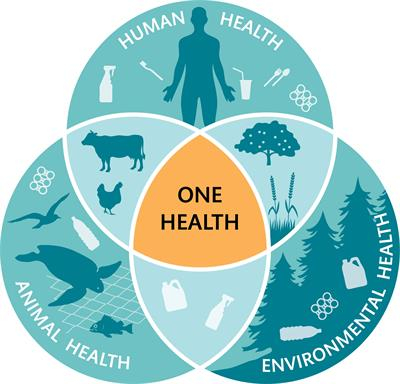In recent years, the concept of "One Health" has gained significant attention in the field of veterinary science and beyond. This approach recognizes the interconnections between human health, animal health, and the environment, highlighting the importance of collaboration and a holistic mindset in addressing global health challenges. By understanding the intricate web of relationships between humans, animals, and the planet, we can strive for a healthier and more sustainable future.
At its core, One Health emphasizes the undeniable linkages between the health of humans, animals, and the environment. It recognizes that the well-being of one component affects the others, and that addressing health issues from a singular perspective is no longer sufficient. By adopting a holistic approach, we can better understand the complex dynamics at play and develop more effective strategies to protect and improve health outcomes for all.
The first pillar of One Health is human health. Traditionally, medical research and healthcare systems have primarily focused on human health, often overlooking the role of animals and the environment. However, emerging infectious diseases, such as zoonotic diseases that can pass from animals to humans, have underscored the need for a broader perspective. By closely monitoring animal health and identifying potential disease reservoirs or transmission routes, we can proactively mitigate risks and prevent future outbreaks that could impact human populations.
Animal health is the second pillar of One Health. Animals play a crucial role in our lives, serving as companions, sources of food, and integral parts of ecosystems. By prioritizing animal health, we not only ensure their well-being but also safeguard human health. Regular veterinary care, disease surveillance, and responsible animal husbandry practices are essential components of this approach. Through early detection and prevention of diseases in animals, we can reduce the risk of transmission to humans and protect both species.
The third pillar of One Health is environmental health. The environment provides the foundation for all life on Earth. Its degradation and the loss of biodiversity can have profound consequences for human and animal health. Climate change, habitat destruction, and pollution all contribute to the emergence of new health challenges. By preserving and restoring ecosystems, promoting sustainable practices, and minimizing our ecological footprint, we can create a healthier environment for all living beings.
Collaboration lies at the heart of the One Health approach. It requires the active participation of professionals from various disciplines, including veterinarians, physicians, ecologists, environmental scientists, public health experts, policymakers, and more. By fostering interdisciplinary cooperation, sharing knowledge, and pooling resources, we can tackle complex health issues more effectively. Collaborative research, data sharing, and policy development enable us to create a united front against global health threats.
One Health also emphasizes the importance of public engagement and education. Raising awareness about the interconnectedness of human, animal, and environmental health is key to driving meaningful change. By educating communities, policymakers, and future generations, we can promote responsible practices, support evidence-based decision-making, and cultivate a culture of environmental and health stewardship.
As we navigate an increasingly interconnected world, the relevance of One Health continues to grow. From addressing emerging infectious diseases to tackling antimicrobial resistance, from safeguarding food security to combating climate change, this holistic approach provides a comprehensive framework for solving complex health challenges.
By embracing the principles of One Health, we can work towards a future where the health of humans, animals, and the environment are inextricably linked and protected. It is through collaboration, innovation, and a shared commitment to sustainability that we can build a healthier and more resilient planet for generations to come.
